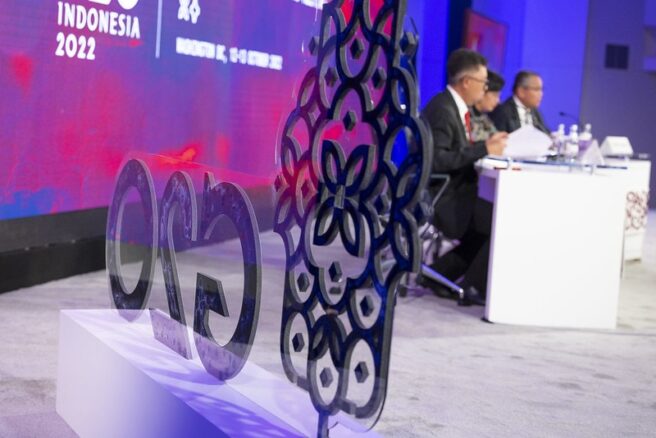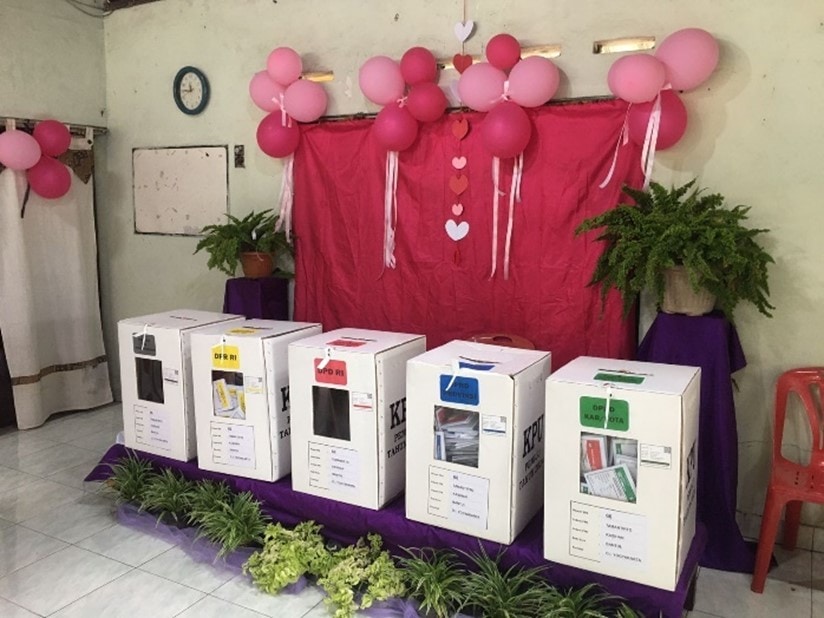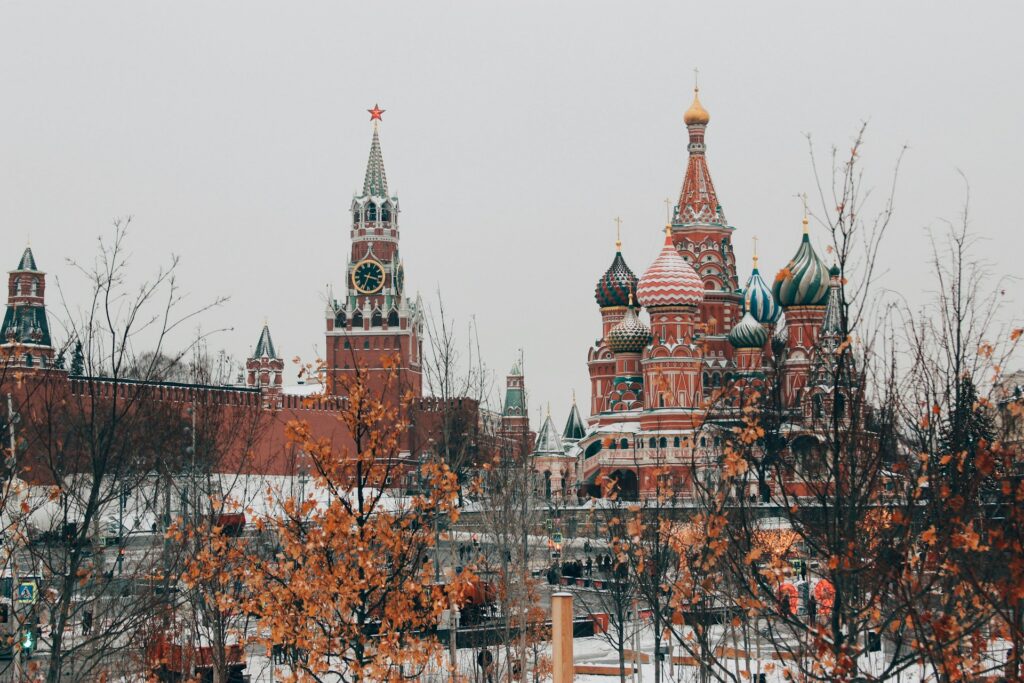Indonesia holds the presidency of the G20 intergovernmental forum for 2022. The presidency coincides with initiatives and discussions and elite meetings that have global significance, but it seems like practical connections to people’s lives in low- and middle-income countries remains limited.
In 2022, Indonesia holds the presidency of Group of Twenty (G20), which is an intergovernmental forum of 19 countries and the European Union. In this role, Indonesia has huge opportunities to shape guidelines for the world’s future. According to the G20’s own website, it represents “more than 80 percent of world GDP, 75 percent of international trade and 60 percent of world population”.
As an Indonesian living in Finland, the G20 Presidency of Indonesia offers me new insights about the G20 itself. As a common world citizen, my understanding of G20 events has always revolved around world leaders gathering to discuss global issues that affected the world, such as climate change, global pandemic, or equal economic growth, and what efforts or collaborations between countries to tackle such global issues.
The G20 summit is more or less similar to most other annual summits of, such as, the United Nations’s Climate Change Conference or the World Economic Forum: an elite event, involving prominent persons or world leaders in politics, business, culture, and so on.
Indonesia will focus on 3 issues: inclusive health care, digital-based transformation, and transition to sustainable energy. They are all important issues to discuss, yet they are irrelevant, notably for the Indonesian public and for many citizens at the Global South.
Being a middle-income country and holding the G20 presidency in 2022, Indonesia has a chance to promote issues that impacted global citizens, especially for low- and middle-income countries. Indonesia as an archipelagic country also faces an immediate risk of climate change and rising sea-level. Its capital Jakarta is predicted to sink under water by 2050. It is important to address this reality with the G20 leaders.
The Indonesian President Joko Widodo, known as Jokowi, stated in his speech in the opening ceremony (starting at 57:30) on December 1st 2021, that Indonesia will focus on 3 issues: inclusive health care, digital-based transformation, and transition to sustainable energy. They are all important issues to discuss, yet they are irrelevant, notably for the Indonesian public and for many citizens at the Global South.
A missed opportunity?
Indonesia’s focus on three priorities: Global Health Architecture, Sustainable Energy Transition, and Digital Transformation”, can also be seen as missed opportunities to deliberate on local Indonesian issues, and many real issues impacted many people in middle-income countries.
Yes, the global health issue is still relevant due to the Covid-19 pandemic situation, but Indonesia may push the agenda towards access to vaccinations in general—for all citizens—with the United Nations’ slogan ‘no one is safe, until everyone is’.
Since Indonesia had developed its own local vaccines, the G20 opens an opportunity to ask for collaboration on further vaccine development through transferring knowledge from high-income countries to middle-income countries, on, for example, how to store the vaccine effectively and how to foster local medication drives.
It is publicly known that Indonesian citizens use imported vaccines, especially in relation to Covid-19, showing that the country does not appreciate its own products. Such issues, regarding health care and the availability of the Covid-19 vaccines for all, are not widely discussed in the G20 events. The health working group discussed other things, such as value-based health care and digital health and the official website consists of lists of events, not detailing the issues being discussed.
Green energy is certainly needed for the future, but with high costs throughout the product cycles, it is again likely that only high-income citizens can afford such an energy transition.
With the other two priorities of sustainable energy transition and digital transformation, it is obvious that Indonesia is likely to cater to the issues proposed by the high-income countries. Green energy and digitalization are strong in Western countries, with recent discussions on the EU Green Deal and the USA Green New Deal, and Indonesian citizens are only seen as users or consumers of the products of digital and clean energy from high-income countries. Indonesia still relies heavily on fossil-fuel energy, and the digitalization process is not equal, either.
It is worsened by many unsolved cases of personal data breaches, due to heavy usage and data-sharing in social media platforms. Infrastructure for technology is only available in big cities or only for high-income citizens, not yet for all, especially given how unequally infrastructure — digital and otherwise — is distributed within the country. If the digital economy only means the number of social media users, Indonesia is on the top, but with the inability of the government to tackle problems of literacy, personal data protection and lack of proper regulation, Indonesia won’t be effective to foster digitalization at this stage.
Green energy is certainly needed for the future, but with high costs throughout the product cycles, it is again likely that only high-income citizens can afford such an energy transition. Due to the lack of technology and infrastructure, it is a challenge for middle-income countries to provide green energy for their citizens with the current situation, notably after the pandemic.
Thus, priority issues are not compatible with the Indonesian—low and middle-income countries— concerns. Most its citizens are still struggling with basic health and education issues, affordable and clean water, food waste, and home-based economy, to name a few. These issues are still rampant in many middle-income countries, yet, these are not discussed in the G20 events.
Events for elites?
I have been studying the activities of G20 Indonesia’s presidency from its social media feeds, thanks to a work colleague whom asked me to collaborate in proposing a policy brief abstract for ThinkTank20 Indonesia 2022. Previously, I had no idea that such a think tank community for offering “research-based policy recommendations to the G20 leaders” even existed.
Our work collaboration resulted in a Policy Brief for sustainable agriculture. Thus, from this experience, I learned that during a year of presidency and before the G20 Summit, many issues and activities have been discussed in many events, within the Ministerial Meetings, Working Groups, and Engagement Groups throughout the year.
There are at least 10 engagement groups, non-government works stated to relate within the G20 framework relating to business, civil society, labour, science, think tanks, urban issues, women and the youth, the parliament, and audit institutions. There were still additional group meetings for religion, education and tourism. Since my work focuses on parliamentary issues, I was updated with details of the inner workings of both parliamentary and think tank engagement groups.
My experience shows that the G20 events are mainly for political elites, rather for the general public, even in the host country.
In early January 2022, I was notified about the timeline for submitting a policy abstract with different themes and attended many online meetings before the Policy Brief Submission in July. Due to many participants, group representatives who submitted abstracts could present their submitted proposal, but the presentation was only allocated a maximum of two minutes. I learned from such meetings, that most presenters only cared about their own presentations and did not listen to others. I felt that our brief Policy Briefs, intended for policymakers, were likely not being read at all, which also affected the participants’ attitudes.
Moreover, when I was invited as a keynote speaker to online events in Indonesia and shared my research on sustainability or sustainable development goals (SDG), usually most participants knew little to nothing about SDG nor about G20 events. The educated society and academic audiences seemed more familiar with the red banners of G20 Indonesia, although they, too, did not really seem to care about the discussed topics.
This shows that the G20 events are mainly for political elites, rather for the general public, even in the host country. Some events were even held outside Indonesia, in conjunction with Indonesian ministers travelling abroad.
Events in parliament
The Indonesian parliament, DPR (Dewan Perwakilan Rakyat) hosted the engagement event for parliamentary issues in its own usual style, like a seminar, where everyone listened to keynotes’ speeches and representations relatively passively, instead of parliamentary members debating or deliberating on what was being discussed. An Indonesian member of parliament, Achmad Tohir boasted that Indonesia is holding a successful event when participants come from many countries, even more than just the G20 delegations, although the meeting only produced a concept note Joint Outcome which looks like a simple meeting summary.
In the summary, the parliament states that it seeks “a strong will to make united efforts to address global challenges, including how to improve collaboration through the multilateral system for global recovery from the COVID-19 pandemic”, but it is unclear what this practically means. I fear that as usual, in Indonesia, after international events further commitment will be forgotten, never translated into legislation, or even internal parliament regulations.
The event was organized by the parliamentary international cooperation body (BKSAP) of the Indonesian parliament whose activities revolve around global issues, and which usually promoted the values of SDG. At the G20 events, one of the priority issues has been gender equality and women empowerment, yet this body does not even practice such values on its own. The five leaders of this body are all men, ignoring the importance of gender equality that it promoted. Indeed, it was another example of the notorious “all-male-panel”, as I had to remind them, especially when discussing gender equality.
In the summary, the parliament states that it seeks “a strong will to make united efforts to address global challenges, including how to improve collaboration through the multilateral system for global recovery from the COVID-19 pandemic”, but it is unclear what this practically means.
Indonesia has been known to run many successful international events, and yet the outcome of such events, notably on issues relevant for the low- and middle-income countries, even to its own citizens has been questionable —aside from the obvious boost in tourism. The events are mainly elite gatherings.
The peak of G20 event will be the G20 Summit. It will be attended by leaders of G20 members and it is held in Bali on 15-16th November 2022, instead of the capital Jakarta. Indonesian media reported that Indonesia plans to boost the return of tourism to Bali with the event. Promoting Bali and its tourism after the pandemic is important, and the organizer is even inviting non-member of G20, such as Ukraine, to attend.
Notably, Russia’s president Vladimir Putin will still come to the event, despite the Ukrainian invasion and resulting sanctions from the United States and many Western countries. We can only hope that the preceding G20 events and their discussions and decisions will be brought to the table with the world leaders, so that collaboration in tackling global issues can be implemented. However, this seems unlikely.
The strategic role of Indonesia
Indonesia has a strategic role in bridging the issues discussed in the upcoming G20 summit under its presidency. However, 9 months have passed and its events have not reflected what the general public needs. It all seems sadly similar to the Agenda 2030 meetings on SDG, that have been discussed in multiple forums and meetings, even in parliamentary gathering, but at the end unfortunately detaches from daily issues.
The G20 provides significant platforms to shape a sustainable future for environmental protection, economic growth and human development. The question remains why Indonesia doesn’t use this platform to address local issues that concern the country itself. These could include, for example, technology and infrastructure for regions at risk being underwater, affordable renewal energy, or fisheries and aquaculture development.
These issues are more significant and serve as Indonesian contributions as an archipelago state, and are vital for world food consumption. Another highly relevant topic could be waste or garbage issues. It is important for Indonesia and other middle-income countries to say no to the trash-dumping from Western countries, to ensure sustainable consumption. The discussed issues must really impact many people in practical terms, and this can be voiced by Indonesia.
Indonesia needs to use its strategic role to raise the issues that impacted its own citizens first.
With the theme of “Recover Together, Recover Stronger”, president Jokowi and his ministers hoped that the “Indonesian Presidency at the G20 is not merely ceremonial, but move to real actions”. Yet, such real actions are not yet seen from the events held within the G20 Indonesian presidency. We only see many events of elites, without commitments, but still seeking solution and cooperation. It is all talk, but with little action.
Collaboration is needed to tackle global issues, and voices from low and middle-income countries, like Indonesia, must be heard. However, Indonesia needs to use its strategic role to raise the issues that impacted its own citizens first. Using domestic problems faced by the public to seek a global solution would make the G20 summit more meaningful to all.
Ratih D. Adiputri is a university lecturer at the University of Jyväskylä, Finland.
Image source: IMF Photo/Alison Shelley/Flickr.





